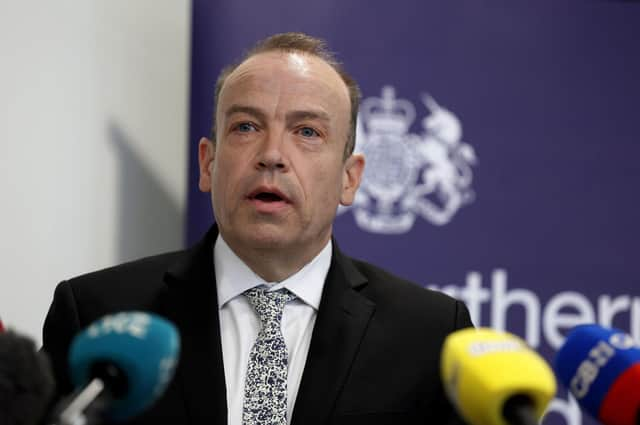Ben Lowry: UK patience with Ireland's hypocrisy on legacy has perhaps finally snapped


In the thread, which is embedded in this web page, I detailed a small sample of the times on these pages over recent years that I have called for the UK and unionists to hit back at the Republic on legacy.
It is, I realise, tedious when someone approvingly cites their own past advice, but the UK-unionist failures on legacy have been so stark that it needs to be said: at no stage, not once, over the last 20 years has any pressure been applied to Dublin on legacy.
Advertisement
Hide AdAdvertisement
Hide AdQuite incredibly, the 2014 Stormont House Agreement (which, mercifully, was abandoned by the UK), had no process to examine Ireland's major role in the Troubles.
The hypocrisy of a state that harboured IRA terrorists so stubbornly, and for so long, thus resulting in so many deaths, particularly of border Protestants, endlessly scolding a UK that prevented civil war in Northern Ireland has been barely challenged.
Consider the experience of Canon Alan Irwin, who writes a letter on the opposite page (in the print edition, click here to read it online). That both his father Thomas and uncle Frederick were murdered by the IRA is an illustration of the statistics of the Troubles in Fermanagh, that I cited in recent column on legacy (click here to read it). Of 116 people killed in the county, 100 were killed by republican terrorists (99 of those the IRA). Five were killed by loyalists, five by the army, one by the UDR, one by the RUC, one a terrorist by their own device, and three died of other causes such as drowning.
It is a story of the terrorising of the Protestant minority community and of almost no retaliation. Not one you hear much on the BBC and RTE, who never stop reporting on alleged loyalist collusion.
Advertisement
Hide AdAdvertisement
Hide AdThose Fermanagh murderers used the Republic of Ireland as a safe haven, given its disgraceful extradition policy. From 1973 to 1997 the UK made at least 110 requests for extraditions from the Republic, and only eight were extradited.
The story of extradition cannot be isolated from the story of British naivete and softness around Ireland. The unionist-despising Whitehall officials who drew up the Anglo Irish Agreement foolishly thought that Dublin would co-operate on security after that disastrous 1985 deal.
They soon learned what was obvious to anyone who had properly absorbed Irish attitudes to Britain - that no such help would be forthcoming.
I am not someone who believes that there was widespread collusion between the authorities in the Republic and the IRA. In the same way there was minimal loyalist-UK collusion, there was minimal collusion with the IRA south of the border. The statistics on Sinn Fein’s vote in the Republic between the early 1980s, when it started contesting elections, and the 1998 Belfast Agreement, getting between 1% and 4% of the vote, shows that most Irish people viewed the IRA with contempt.
Advertisement
Hide AdAdvertisement
Hide AdThe problem for supporters of the UK in Northern Ireland, however, is that there was no love for Britain or unionists, hence an extradition policy that reflected ambivalence towards Irish republicans.
For years I have wondered when the backlash to the inversion of legacy, in which the UK security forces who acted with so much restraint in the face of 30 years of violence from well known terrorists, have become the villains, and republican terrorists, who killed 60% of the Troubles dead, are the freedom fighters, would come. And it has never done so, and I began to think it never would.
I do wonder, though, whether this Irish legal action is the final straw.
It is the first time that I can ever recall UK ministers hitting back in kind at their perpetual scolds in the Irish political world.
Advertisement
Hide AdAdvertisement
Hide AdChris Heaton-Harris's statement on the Irish decision to sue (click here to read it in full), more or less calling them brazen hypocrites, was perfectly reasonable and justified, but nonetheless remarkable in light of previous weakness.
Given Ireland's own obvious, albeit undeclared, amnesty for IRA terrorists in its jurisdiction, the double standards are plain for almost everyone outside Irish nationalism to see.
This is one of the first times that I feel that even London thinks Dublin has overplayed its hand.
• Ben Lowry (@BenLowry2) is News Letter editor